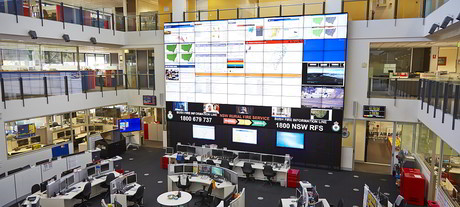Changes coming for our control rooms

Control rooms are an essential component of an organisation’s or industry’s operation. In some sense, critical control rooms are the actual heartbeat of an enterprise and they have to function 24 hours per day, seven days per week. During this process humans and machines combine to provide an operational function(s) that benefits a broad range of stakeholders. However, given the rapidly changing information and communications technology environment, key decision-makers are facing a growing challenge dealing with the digital revolution. As a result it is essential that current and emerging technologies, including the impact on personnel working in a control room, are fully considered when designing the next generation of control rooms. In part, this has been a key driver in establishing the International Critical Control Room Alliance (ICCRA).
The first ICCRA Congress was held on 5–7 December in Geneva. This was a highly successful event with delegates from across the globe coming together to share their knowledge and thoughts on the potential future direction of control rooms. Key themes emerging from the discussions included the increasing use of data within this environment, and the emerging role of machine learning and machine-to-machine communications.
These trends provide an opportunity to automate a range of functions. For example, Liam Caldecott of the Derbyshire Constabulary explained how it is moving towards an automated tasking environment to improve the efficiency of its control rooms. This is an interesting initiative, especially when considered against George Rice’s (Industry Council for Emergency Response Technologies) presentation which detailed how broadband is threatening to increase a telecommunicator’s workload. As a result we need to consider new roles, additional staff and a broader range of analytic capability within a control room. Jeffrey Cohen (APCO International) reinforced this concept of a changing environment when he provided an overview of APCO’s recent Project 43, which has found that broadband-based developments are leading to a paradigm shift in the role and functioning of the public safety answering point.
Cybersecurity continues to be a critical issue of concern to all control room operators, although it is unclear if there is enough capacity within existing control room arrangements to manage this key vulnerability. Similarly, the importance of having a well-developed business continuity plan that is regularly tested was reinforced by Theodoros Alexandridis (Greek National Natural Gas System Operator).
A key feature of the ICCRA Congress was a strong focus on people, not just the technical aspects. Russell Ockendon (Control Centres Australia) provided an enlightening presentation on the effectiveness of good ergonomic design, showing that it needs to start early with an understanding of the operational and task needs before going anywhere near designing an actual workspace.
Despite changing technology, it was evident that all delegates foreshadowed a long and continuing role for LMR within this changing landscape. The key test will be determining how we can achieve optimum efficiency and effectiveness through the combination of LMR, broadband and advanced computing capabilities. No doubt this will be a continuing conversation at the next ICCRA Congress (which should be held in London towards the end of this year) and the forthcoming range of Comms Connect/ARCIA conferences.
5G drones deliver live images from emergencies
Timely images allow emergency responders to gain an early impression of the situation and provide...
NZ emergency services approach cyclone season with better comms
Emergency services will face this cyclone season with improved cellular communications...
Triple Zero Custodian Bill passes, as Senate inquiry looms
With an open inquiry into Optus and the Triple Zero ecosystem just days away, new legislation has...




